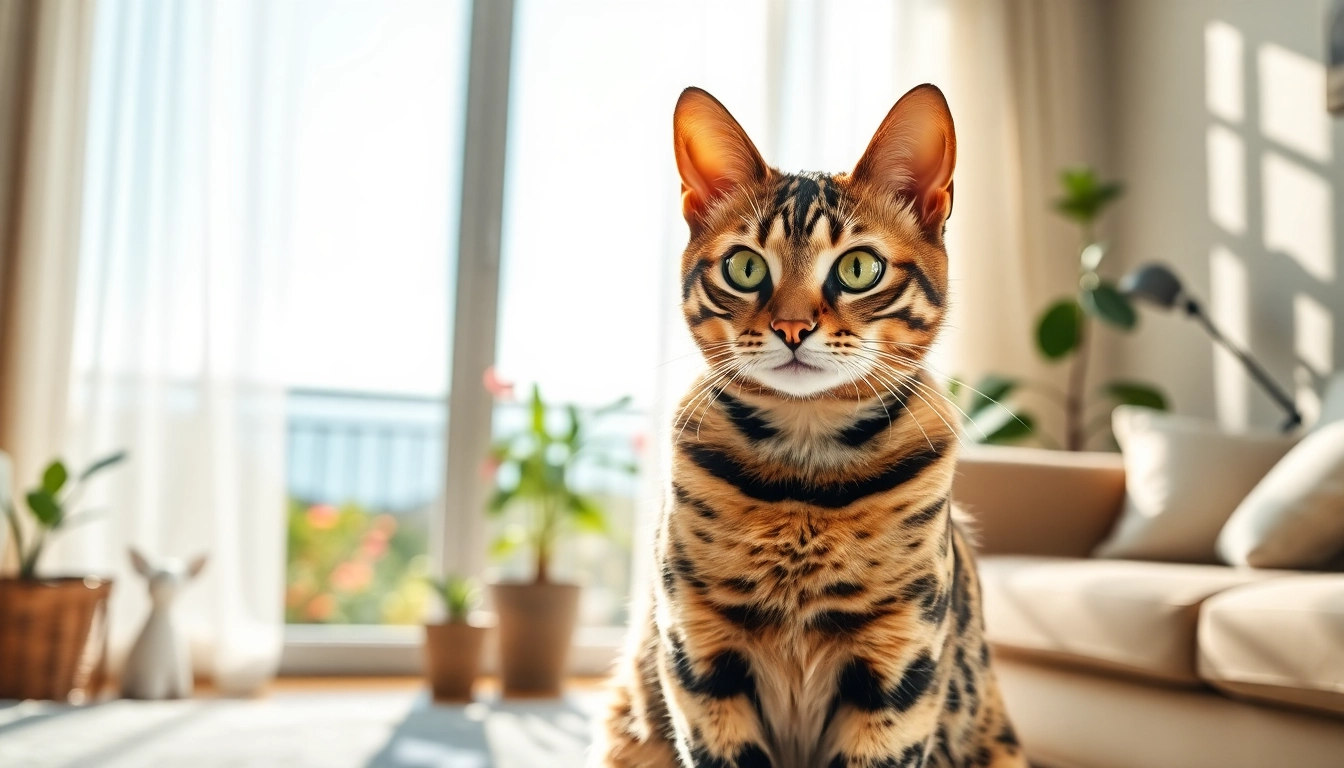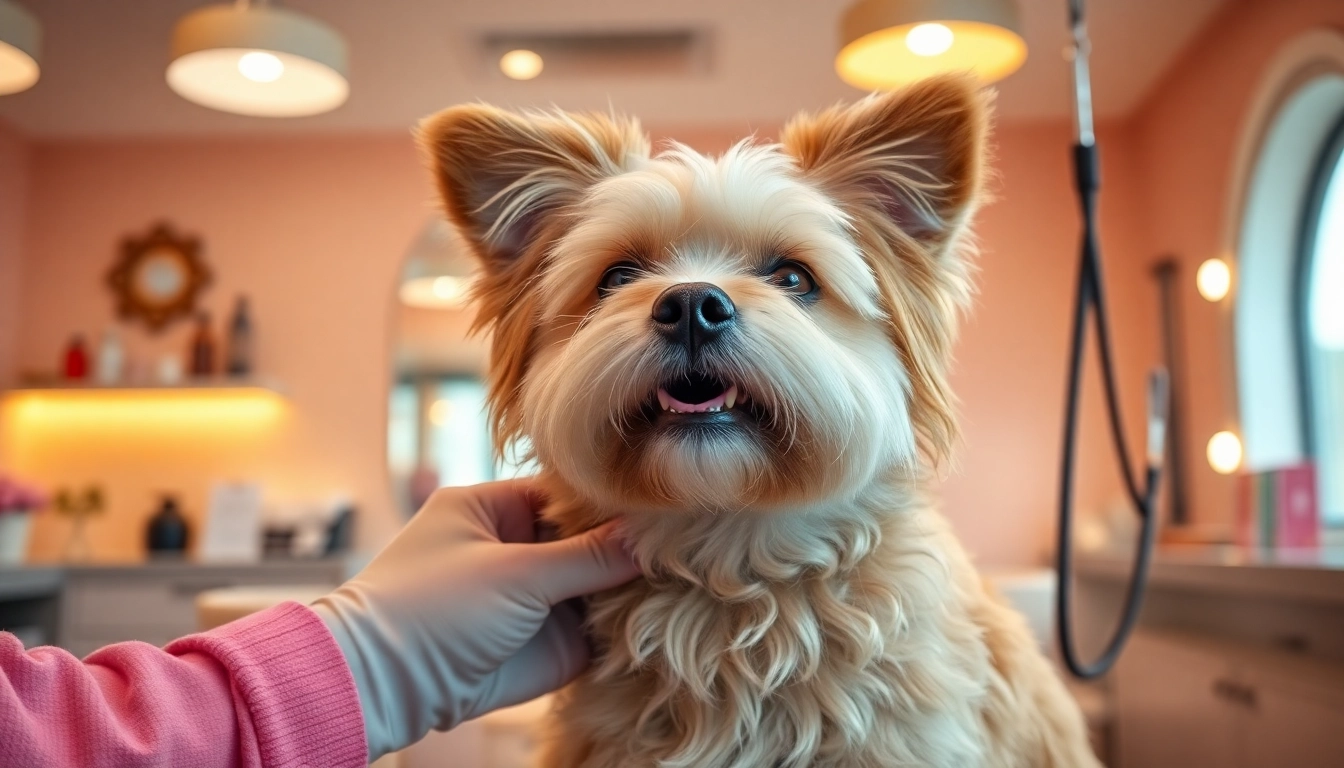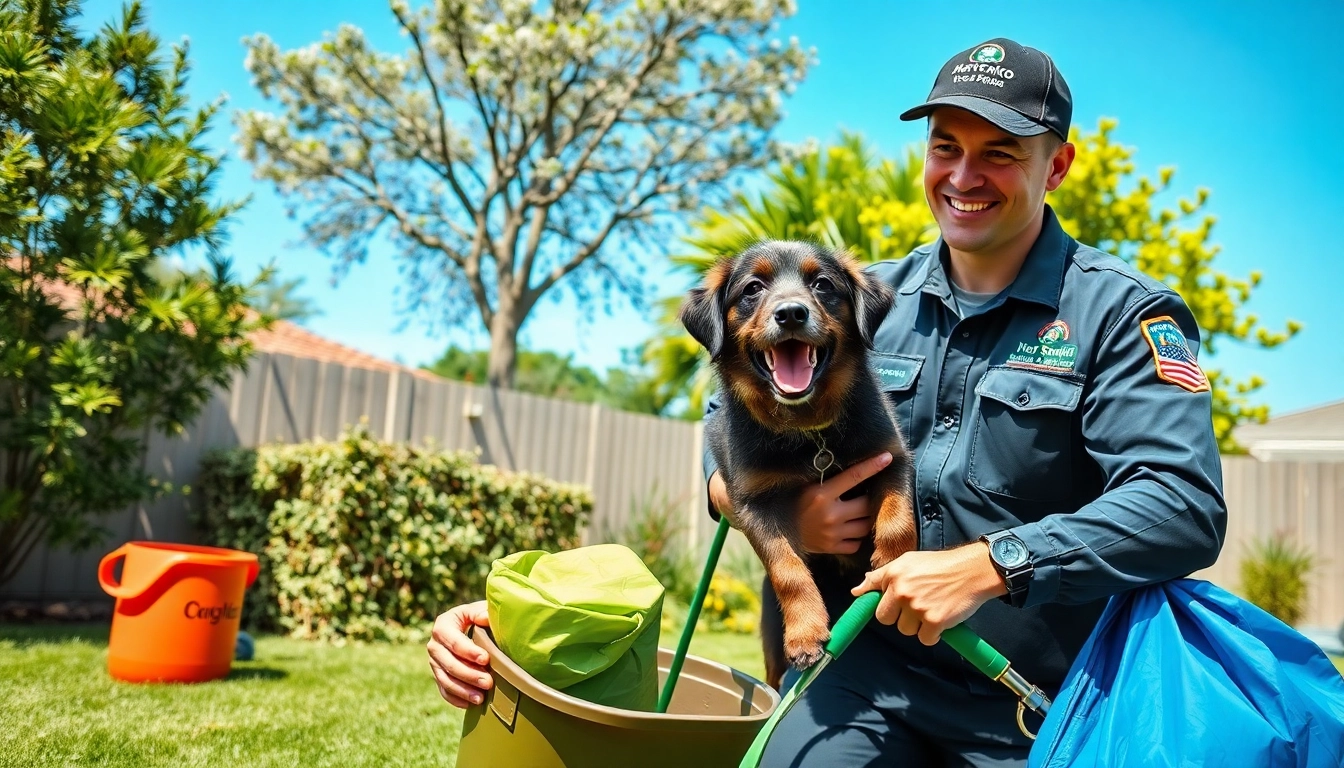Understanding the Bengal Breed
Origin and Characteristics
The Bengal cat is known for its exotic appearance, resembling a wild leopard or ocelot. This breed originated from the crossbreeding of the domestic cat with the Asian leopard cat, specifically in the 1970s. The goal was to create a feline with the beauty of a wild cat but the temperament and care requirements of a domestic one. Bengals are easily distinguishable by their stunning coat patterns, which can include spots, rosettes, and marbling. Their typical coat is short and dense, giving them a unique texture that feels luxurious to the touch.
In terms of size, Bengal cats are medium to large, with males typically weighing between 10 to 15 pounds and females slightly lighter. Their physical build is athletic, with a muscular body, long legs, and a thick tail, contributing to their playful, energetic nature. A Bengal’s eyes are large and almond-shaped, usually striking green or gold, adding to their captivating look.
Temperament and Behavior
Bengals are known for their playful and curious disposition. They are social animals that thrive on interaction, both with their human companions and other pets. This breed is highly intelligent and requires mental stimulation to prevent boredom, which can lead to destructive behavior. Bengals enjoy engaging in activities such as fetching, climbing, and exploring, making interactive toys and cat trees essential for their well-being. It’s important for potential adopters to understand their energetic nature so they can provide adequate stimulation and companionship.
Socialization plays a significant role in a Bengal’s behavior. Early exposure to various environments, people, and animals can help them develop into well-adjusted adult cats. They are also known to have a vocal nature, often communicating with their owners through chirps or meows. This communicative behavior enhances the bond between the cat and its owner, making them more of a family member than just a pet.
Health and Maintenance Tips
While Bengals are generally robust and healthy, they can be prone to certain health issues, such as hypertrophic cardiomyopathy (HCM), a common heart condition in cats. Regular veterinary check-ups, including screenings for heart conditions, are essential to maintain their health. Additionally, nutrition plays a crucial role; a balanced diet tailored to their energetic lifestyle will ensure they remain healthy and playful.
Grooming is relatively easy with Bengals due to their short coat, requiring weekly brushing to remove loose fur and reduce hairballs. Regular dental care is also important; incorporating dental treats and brushing their teeth can help prevent oral diseases.
Bengal Breeders in Orange County: What to Look For
Qualities of Reputable Breeders
When choosing a Bengal breeder in Orange County, it’s vital to look for certain qualities that indicate a reputable and ethical breeder. First and foremost, breeders should be TICA registered, which ensures they adhere to specific breeding standards. A great breeder would provide a health guarantee for their kittens and be open about the history of their breeding practices.
In addition to registration, a responsible breeder prioritizes the health and temperament of their cats. They should conduct health screenings for common Bengal issues such as HCM and provide potential buyers with detailed medical information about the kitten’s lineage. This transparency helps ensure that you are adopting a healthy kitten.
Questions to Ask Your Breeder
Before committing to a Bengal kitten, it’s essential to ask the breeder a series of questions that can give you deeper insight into their practices and the kitten’s background. Here are some key questions to consider:
- What health tests have been performed on the parents and kittens?
- Can I see the breeding parents and where they are kept?
- How socialized are the kittens? Have they been exposed to different environments or people?
- What is the kitten’s diet and any recommended feeding guidelines?
- What is the policy on returning a kitten if I cannot keep it?
Asking these questions not only helps you find a good fit for your new pet but also allows you to assess the breeder’s commitment to the breed and the welfare of their cats.
Visiting Breeding Facilities
Nothing compares to experiencing a breeding facility in person. When visiting an Orange County Bengal breeder, pay attention to the cleanliness and overall condition of the environment. A reputable breeder will maintain a hygienic space for their cats, which reflects their commitment to health and well-being.
During your visit, observe how the cats are housed and treated. You should be able to see where the kittens are raised and how they interact with their breeders. A breeder who socializes their cats in a loving environment is more likely to produce well-adjusted kittens.
The Adoption Process: From Inquiry to Bringing Home
How to Prepare for a New Bengal Kitten
Welcoming a Bengal kitten into your home requires preparation to ensure a smooth transition for both you and your new pet. Start by setting up a designated space for your kitten, complete with a litter box, food and water bowls, and a sleeping area. This area should be quiet and away from high-traffic parts of your home to give the kitten a sense of security.
Investing in toys, scratching posts, and climbing structures will not only enrich their environment but also cater to their playful nature. Before the kitten arrives, ensure that your home is kitten-proofed—remove potential hazards such as toxic plants, open wires, and small objects that they could swallow.
Understanding Adoption Fees
Adoption fees for Bengal kittens can vary greatly depending on the breeder’s reputation, the kitten’s lineage, and additional factors such as health screenings or pedigree certifications. Typically, you can expect to pay between $1,500 to $3,000 for a Bengal kitten in Orange County. While this can seem steep, it often includes valuable benefits like early vaccinations, spaying/neutering, and a health guarantee.
It’s crucial to understand that adopting a kitten is not just a one-time expense. You’ll need to budget for ongoing costs, including food, veterinary care, grooming, and toys. Ensuring that you’re financially prepared can make the transition smoother for everyone involved.
Transitioning Your Kitten to Home Life
The first few days in a new home can be overwhelming for your Bengal kitten. It is essential to give them time to adjust to their new surroundings and establish a routine. Allow them to explore their new habitat at their own pace. During this transitional phase, provide hiding spots and cozy places where they feel secure.
Consistency is key in this period. Keep feeding and playtime regular to help the kitten establish a sense of normalcy. Gradually introduce them to various parts of your home, ensuring that each area is safe and comfortable for exploration.
Connecting with Other Bengal Owners
Local Bengal Cat Communities
Connecting with other Bengal cat owners can offer valuable support and insights into the breed. In Orange County, there are several local Bengal cat communities where owners gather to share their experiences. These groups often organize playdates, socialize Bengal cats, and discuss common concerns regarding care and health.
Joining local meetups not only fosters a sense of community but also allows owners to exchange tips on grooming, health concerns, and behavioral issues. Consider reaching out via social media platforms or local pet stores to find these community events.
Online Bengal Cat Forums and Resources
For those moments when you need advice or information, online forums dedicated to Bengal cat enthusiasts are invaluable. Websites such as The Bengal Cat Club provide directories of reputable breeders and a wealth of knowledge on health, temperament, and training tips.
Additionally, social media groups can connect you with other Bengal owners who may experience similar challenges or joys. Engaging with online communities can be a great way to seek advice, share experiences, and even find local adoption opportunities.
Events and Meetups for Bengal Lovers
Throughout the year, various events and cat shows provide platforms for Bengal lovers to connect. These events showcase Bengal cats and often include educational sections where experts discuss care, breeding, and training. Participating in these events can deepen your knowledge and appreciation for the breed, and networking with other owners can create lasting friendships.
Ensuring a Happy and Healthy Bengal
Routine Care and Veterinary Needs
Maintaining the health of your Bengal cat extends beyond simple grooming. Routine veterinary care should include annual wellness exams, vaccinations, and parasite control to keep your cat in peak health. A proactive approach minimizes potential health issues, allowing you to catch problems early.
Be vigilant about dental health, as Bengal cats can be prone to dental issues. Consider scheduling professional cleanings and use dental treats to assist with at-home care. Regular exercise will also keep your Bengal fit—engaging them in activities like interactive play can help prevent obesity and encourage mental stimulation.
Socialization and Playtime Activities
It is vital to provide your Bengal cat with ample opportunities for socialization and playtime. Bengals require stimulation and interaction; without it, they may engage in destructive behaviors. Investing in high-quality toys that encourage interactive play, such as feather wands or puzzle toys, can be worthwhile.
Additionally, consider arranging playdates with other cats or engaging them in training sessions to use their intelligence effectively. This can strengthen the bond between you and your Bengal while satisfying their need for social interaction.
Long-term Commitment to Your Bengal’s Well-being
Owning a Bengal cat is a long-term commitment that requires dedication and care. Bengals can live for 12 to 16 years, and during that time, they will rely on you for their well-being. Developing a strong connection with your cat will contribute to their happiness and health throughout their life. Make informed decisions regarding their diet, health care, and lifestyle to ensure they thrive as a cherished family member.
In conclusion, choosing to adopt a Bengal cat through reputable Bengal Breeders Orange County can lead to a rewarding experience that brings joy and companionship into your life. By understanding the breed’s needs, connecting with other Bengal enthusiasts, and committing to their care, you’ll be well on your way to enjoying a happy, fulfilling partnership with your furry friend.



